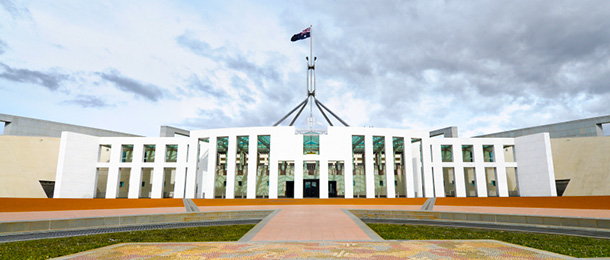The likelihood the proposed Division 296 tax bill will pass through both houses of parliament without amendments is a fifty-fifty proposition, with independent members of parliament increasingly concerned about some elements of the measure, the SMSF Association has said.
Association chief executive Peter Burgess noted there had been a shift in how the bill is viewed in parliament following advocacy by the association and other industry bodies.
“Six months ago it looked almost certain that the bill was going to pass both houses of parliament without amendment. Right now, I think at best it’s a fifty-fifty proposition whether the government will be able to get that bill through both houses of parliament without amendments,” Burgess told attendees at the SMSF Association Technical Summit 2042 last week.
He acknowledged the bill was still in the lower house awaiting further debate, which was likely to take place when parliament resumed from its winter recess on 12 August, but it had been supported by a Senate committee, which recommended it be passed without change.
He added while the association had spoken against the bill at hearings held by the committee, it had continued its conversations with independents and the Greens.
“There has been some amendments put forward and some of these amendments are due to be debated when the bill is debated again,” he revealed.
“Kylea Tink, one of the teals, has put forward an amendment to use a more reasonable approach to calculate earnings and she’s put forward the idea of deeming, as well as CPI (consumer price index) indexation [for the $3 million threshold]. The amendment Tink is putting forward is the amendment we have drafted on indexation.
“[Teal independent MP] Allegra Spender has proposed an amendment in which taxing unrealised gains is not to be used in the design of future amendments of the tax and proposing a five-year deferral where you don’t have to pay your tax in certain circumstances for five years to try and help with liquidity.”
He explained these changes have been put forward as suggested amendments because, in the lower house, only the government can propose amendments to laws that change tax rates.
“Things have moved on since she [Spender] put these amendments forward. She is working with [independent] Senator [David] Pocock on amendments which address the taxation of unrealised capital gains.”
Burgess pointed out the association also pushed back on calls by the Greens to ban limited recourse borrowing arrangements (LRBA) and met with them in June.
“We provided statistical data to show that LRBAs pose no threat to the housing market. They’re not pushing up housing prices; they pose no threat to the superannuation industry,” he said.
“Australian residential property is valued at just under $12 trillion, while LRBAs are valued at $56 billion. They are too small to pose a risk to the sector or the housing market.
“When used in the right circumstances with professional advice, LRBAs can achieve a really good result for individuals, so we hope that the government doesn’t agree to the recommendation to ban LRBAs.”
This publication and the SMSF Association will be co-hosting the SMSF Trustee Empowerment Day 2024 in Sydney and Melbourne in September. Click to register.


